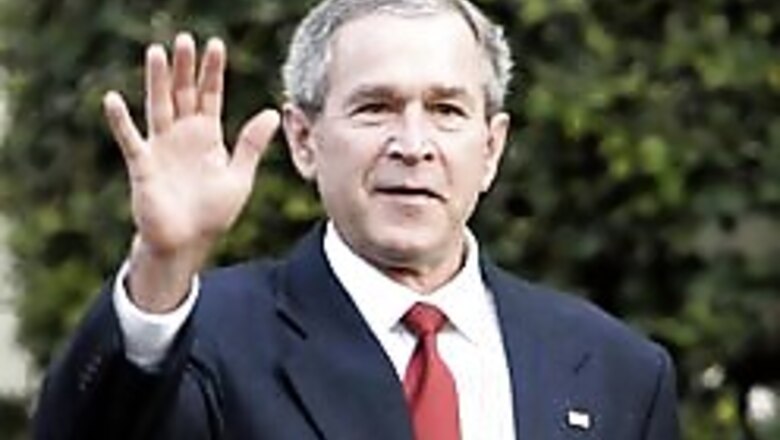
views
Washington: US President George W Bush said on Thursday that the death of al-Qaeda leader Abu Musab al-Zarqawi in Iraq is ''a severe blow'' to the al-Qaeda terrorist network and a decisive victory in the US-led campaign against terrorism.
''Now Zarqawi has met his end, and this violent man will never murder again,'' Bush said in the Rose Garden.
''We have tough days ahead of us in Iraq that will require the continuing patience of the American people,'' the president said.
Bush learned of the killing on Wednesday afternoon from national security adviser Stephen Hadley, who had received a phone call from Baghdad.
''That would be a good thing,'' White House press secretary Tony Snow quoted Bush as saying at the time.
In his statement on Thursday morning, Bush said the terrorist's death means ''the ideology of terror has lost one of its most visible and aggressive leaders.'' But he cautioned that the struggle against terror lives on.
''Zarqawi is dead, but the difficult and necessary mission in Iraq continues,'' Bush said. ''We can expect the terrorists and insurgents to carry on without him. We can expect the sectarian violence to continue.''
News that al-Zarqawi was killed comes at a time of trouble in Bush's presidency.
It is uplifting news for the president whose popularity has been weighed down by waning public confidence in his handling of the war in Iraq.
Only 40 per cent of the public approves of Bush's performance on foreign policy and the war on terror, and just 35 percent of the public approves of Bush's handling of Iraq, according to the most recent AP-Ipsos polling.
The death of al-Zarqawi allowed US counterterrorism officials an initial sigh of relief at what they hailed as a significant development.
US General George Casey, the top US commander in Iraq, told reporters there the development would not end the insurgency. Defense Secretary Donald H. Rumsfeld, in Brussels for a meeting of NATO defense ministers, discussed Zarqawi's death during a closed, mid-morning meeting.
The impact of al-Zarqawi's death is nonetheless symbolic: The US has not seen the elimination of such an iconic figure since former President Saddam Hussein was found in an underground bunker in late 2003.
''It's great, good news. ... This is a significant hit,'' said Sen. Joseph Biden. Senate Majority Leader Bill Frist hailed ''a significant day in the formation of the government of Iraq.''
Al-Zarqawi was considered the most dangerous terror plotter and foreign fighter in Iraq, coordinating a loose coalition of militants numbering at least in the hundreds. Osama bin Laden called him the ''emir,'' or prince, of al-Qaeda in Iraq.
The US government was offering up to $25 million for information leading to al-Zarqawi's killing or capture, putting him on par with Hussein, bin Laden and his top deputy, Ayman al-Zawahri.
During a speech in April, Gen. Michael Hayden, the newly appointed CIA director who was then serving as the number two US intelligence official, said the war in Iraq motivates jihadists, but their failure there would weaken the movement globally.
''The loss of key leaders like bin Laden, Zawahri and Zarqawi - especially if they were lost in rapid succession - could cause the jihadist movement to fracture even more into smaller groups, and would probably lead to strains and disagreements,'' Hayden said.
Al-Qaeda in Iraq has taken responsibility for numerous mortar attacks, suicide bombings, beheadings and other violence against US and Iraqi targets. Scores, including many ordinary Iraqis, have died.



















Comments
0 comment